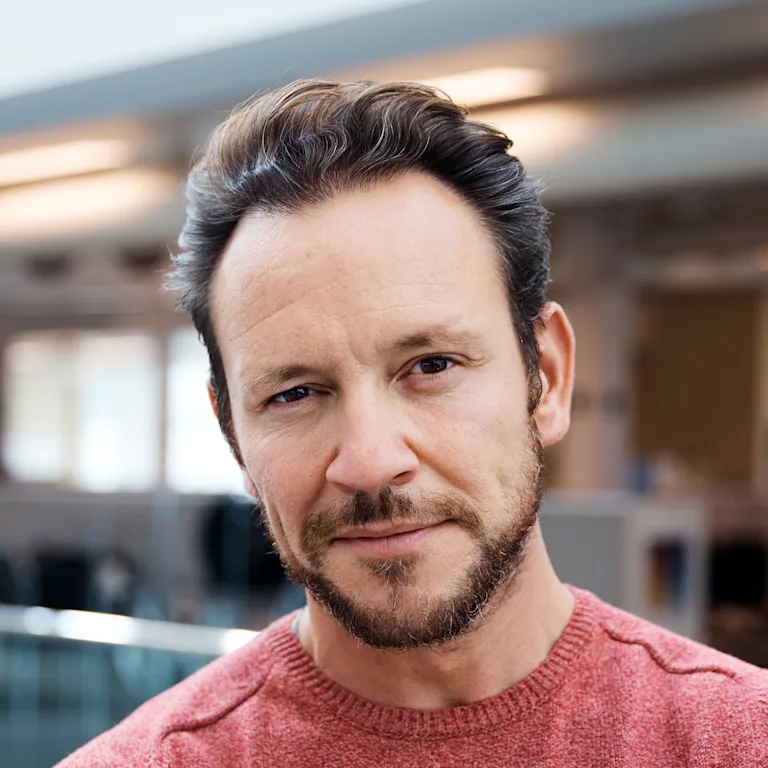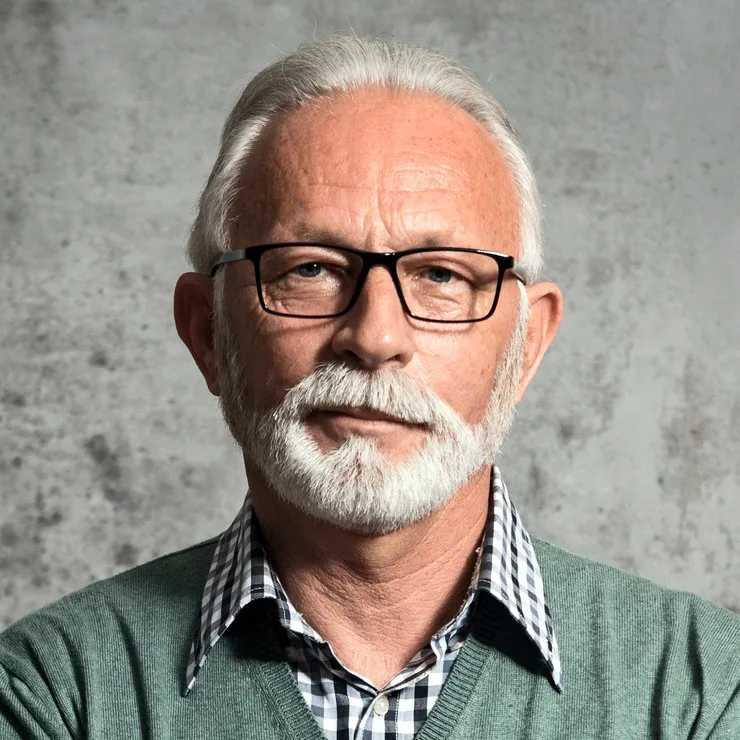
I'm young and healthy. I don't need to plan.
No one wants to think about illness and death. But the truth is, none of us know when illness or accident or cognitive impairment will strike. One day, you may be in a position where you’re unable to make decisions for yourself. Getting your future care settled will set you up to live well — from the day you really need help until the end. Having a plan in place gives those close to you peace of mind. Planning is about living — and dying — on your own terms.
What you should know
“Last year, I found my wife Paige lying on the kitchen floor. She’d had a stroke. It was so sudden. Paige was smart with our money. A lot of it was tied up in investments — in her name. I was shocked the bank wouldn’t let me access her money. After all, I need the money to help to care for her. They said I didn’t have authority. I’m her wife — isn’t that enough? I wish we had talked about an enduring power of attorney when she was well.”
– Ramona, Surrey, BC

Life can offer up an unexpected turn at any age. Like Paige, you might be in the prime of life and experience a life altering health setback. Or be in a serious accident that leaves you unable to manage daily life on your own. In cases like these, someone will need to help you make decisions, or make decisions for you. Big ones — like where you’ll live. Or small ones — like when to pay the utility bill. It’s wise to consider in advance who you’d like to make those kinds of decisions for you.
In British Columbia, a patchwork of laws spell out who can make financial, legal, health care, and personal care decisions for you. Imagine a situation where you’ve become incapable of making these types of decisions independently. In these circumstances, the various planning laws fall into two groups:
1. The default choice. What the law says will happen if you haven’t planned.
2. The plan you choose for yourself. A number of legal options let you override that default choice and have a say in the decision-making. You can plan ahead so that you have a say in who can make decisions for you if you ever can’t make them yourself.
You can have some measure of control
Legal documents can be tailored to fit your preferences and circumstances. You might just want one person to make all of your future decisions, if ever needed. Or you can choose two (or more) people. And you get to decide whether they must make decisions together, and how. We explain how representation agreements and powers of attorney can be personalized to meet your needs.
“When we first had ‘the talk’ about end-of-life care, Mom wasn’t wild about singling out specific family members to take the lead. But Mom’s lawyer reminded her of an important point. If something happened to her, only one person would, by default, be asked to make medical decisions for her anyway. Mom’s lawyer tailored the agreement to reflect Mom’s preferences. In her representation agreement, Mom appointed four family members to make decisions by majority rules. When she got really sick, everyone knew what to do.”
– Akal, Chilliwack, BC

The way people handle illness, make decisions, or even who they consider to be family may differ depending on their culture, religion and other aspects of their identity. For example, in British Columbia, the law emphasizes the right of the individual to make decisions about their own care. This may not be how things are done in your family.
But the reality is these laws apply to you. So it’s important to learn about them, whatever your background. Learning about your legal options can empower you to achieve what you want.
Five reasons you need to plan for your future care
When people think hard about their goals and values, they tend to make better choices.
Planning involves learning about your legal options and figuring out how they apply to your life. You can take this opportunity to:
take a closer look at your financial situation
review your medical history, and understand your health care options
explore your values, wishes and beliefs
think about what you want your future to look like
You and your chosen decision-maker will benefit from this process. You’ll both make more informed decisions in moments of crisis. And these decisions are more likely to line up with your values and wishes.
“While we were vacationing in Hawaii, my partner Abby started complaining about sore joints. We thought it must have been from all the hiking. But it didn’t go away. Turns out she had bone cancer. I can’t believe how fast it happened. One day she was here, the next she was not. After she died, I felt so guilty. Should I have dragged her to all of those doctors appointments? Would she have preferred to spend her last weeks at home with me and the kids? It keeps me up at night.”
– Elliott, Burnaby, BC

Planning in advance also helps to reduce the burden of everyday caregiving. For example, your attorney (under a power of attorney) can step in seamlessly to deal with your finances, as needed. Your day-to-day bills, rent or mortgage payments, and medical expenses can be covered without delay.
The evidence is in
Research shows that planning for your health care results in better outcomes for family members and caregivers. Planning reduces the burden of decision-making, relieves anxiety and depressive symptoms, and makes people more satisfied with the care provided.
Planning doesn’t just give you control over what happens to your body. It also helps you control what happens to your money and assets.
This is particularly important if you want to protect your assets for reasons like these:
you have dependents who need support, but the assets to support them are under your name alone
your loved ones need access to your money to provide you with good care
you’re the joint owner of a certain asset (such as a home), and a sale or refinancing isn’t possible without your signature
No one has the automatic authority to make legal, financial, or even personal care decisions for you if you become incapable. As a last resort, a family member or friend may need to apply to court to get the authority to make decisions for you. To do this, they’ll need to ask the court to appoint them as your committee. A committee has the same rights and powers over your affairs as you would if you were capable.
There are two types of committees:
a committee of person becomes responsible for making decisions about an adult’s health and personal matters
a committee of estate becomes responsible for making decisions about an adult’s financial and legal affairs
“Our daughter Helene was in a boating accident… she hasn’t been the same since. Her rehab expenses are skyrocketing. We want to sell her investment property to pay for her care expenses. We’ve been told that because she didn’t plan in advance, our only option is for one of us to apply to court to become her committee of estate. I can’t believe we have to jump through all of these legal hoops just to help our child.”
– Alphonse, Squamish, BC

Going to court is rarely a desirable Plan A. It’s expensive and time-consuming and can cause unnecessary stress for family and others close to you. It can take months or even years for applications to be heard in court. This can delay access to money needed for your care and degrade your quality of life.
Usually, a family member or friend applies to become committee. But there’s no guarantee the court will appoint them. Before appointing a committee, the court must declare you incapable. This declaration strips you of your decision-making rights over your body and property.
The Public Guardian and Trustee can be appointed as committee
This may happen, for example, when there’s family conflict or no one steps forward to apply. The Public Guardian and Trustee is a public body that protects the interests of British Columbians who lack legal capacity to protect their own interests.
If it appears that an adult needs help, a provincial health authority may conduct a medical and functional assessment. If the adult is found to be incapable, the health authority will issue a certificate of incapability. The Public Guardian and Trustee can automatically be appointed after this certificate is issued.
If you’re incapable of consenting to a health care treatment, someone else needs to make the decision for you. There’s a hierarchy of authority that a health care provider must follow if a decision needs to be made and you’re not able to make it.
At the bottom of the hierarchy is a temporary substitute decision-maker.
This person will be temporarily appointed to make a specific health care decision for you. They’ll only be called on if you don’t have another authority in place that addresses the specific health care need. Unlike other authorities which you can choose in advance, a temporary substitute decision-maker is not someone chosen by you — it may be someone you never would have wanted to make a decision about your health for you.
To choose a temporary substitute decision-maker, your health care provider must choose someone from a ranked list, as set out under the law. Our page on temporary substitute decision-makers explains who might be chosen and what they’ll be asked to do.
Start planning
Planning begins with imagining — truly imagining — yourself reduced to incapacity. Who do you ideally see in this picture, making important decisions for you? How involved do you want them to be? Once you’re clear on your wishes, it’s time to make a more concrete plan.
Explain to your family and friends exactly what you’d like to see unfold. A good place to start is to think about how and by whom, you would want decisions to be made if you ever become unable to make decisions for yourself.
Once you've thought about your wishes, learn about the planning options available in British Columbia and how they might be used to achieve what you want. We explain your options for planning for your future financial and legal affairs, as well as your health care and personal care planning options.

